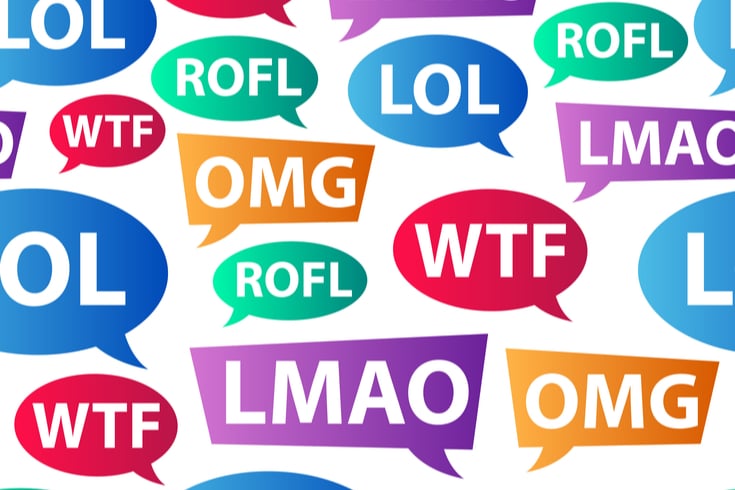Can 'Die' or 'Drop Dead' be Considered Defamation? Introducing Court Cases Related to Internet Slang

Online defamation is not only expressed directly with phrases like “Die,” but also exists in the form of internet slang (net slang) such as “Shine” or “Tahi”.
We will explain whether it is possible to pursue legal responsibility for defamation through such net slang, based on actual case examples.
The Relationship Between Internet Slang and Defamation
Firstly, are there any issues unique to internet slang in relation to the requirements for defamation?
Requirements for Defamation
Generally, “defamation” has the following two meanings:
- Criminal defamation (Japanese: 名誉毀損罪)
- Civil defamation (Japanese: 不法行為)
The basic requirements for both of these are as follows:
- Publicly
- Indicating a fact
- Defaming someone’s reputation (lowering their social evaluation)
However, in civil defamation, there are types such as “defamation by opinion or criticism” that do not involve the indication of a fact, and strictly speaking, their scope of establishment (exemption requirements) differs. Please refer to the following article for a detailed explanation.
In addition, there are also types such as “infringement of honor feelings” that can be illegal acts even without the indication of a fact and without lowering social evaluation, and the criteria for judging illegality differ. For more information on the infringement of honor feelings, please refer to the following article.
Thus, whether the expression indicates a fact or not, and whether the expression lowers the social evaluation of the subject or not, are important perspectives when considering the success or failure of defamation.
Defamation by Internet Slang is Extremely Special
However, internet slang is extremely special, and it is conceivable that only a limited number of people can understand the meaning of the expression.
If the meaning cannot be specified, it is impossible to judge whether the expression indicates a fact or not, and whether the expression lowers the social evaluation of the subject or not (in this case, defamation is not established).
Identifying the Meaning of Internet Slang in Legal Precedents

So, how do legal precedents identify the meaning of internet slang?
The Supreme Court (Supreme Court decision, July 20, 1956 (Showa 31) Minshu Vol.10 No.8 p.1059) has stated that in interpreting the meaning of an expression in defamation cases, the standard should be the “ordinary attention and reading of the general reader”.
And the “general reader” in terms of expressions on the internet is usually assumed to be someone who has a certain level of knowledge about the nature and themes of the services such as SNS and bulletin boards.
Therefore, if the internet slang is understandable to those who use the internet on a daily basis, defamation can be established unless it is extremely special.
Below, we will introduce four legal precedents that provide specific interpretations of internet slang.
“Shine” = “Die” / “Tsuburero” = “Go bankrupt”
In a court case regarding multiple posts on 2channel, such as “Shine!!” and “Tsuburero!!”, the court stated,
“It is recognized that the three plaintiffs each received messages containing the phrase ‘Shine!!’, which means ‘Die!!’, and ‘Tsuburero!!’, which means ‘Go bankrupt!!’, in addition to being referred to as ‘Garbage X’, an abbreviation for ‘Garbage X Company’.”
Tokyo District Court, January 11, 2011 (Heisei 23)
After correctly interpreting each word, the court acknowledged the establishment of defamation by opinion or criticism as follows:
According to the latter part of the article in question, the above-mentioned three people should die, and the plaintiff should go bankrupt. This is an expression of opinion or criticism based on the facts presented in other posts on this thread, and it is recognized as defaming and slandering the plaintiff itself, including the description of the above-mentioned three people, and lowering its social evaluation.
(Omitted)
Because it uses vulgar and insulting expressions to defame and slander the plaintiff, it is recognized as being out of the realm of opinion or criticism, and is considered to have originated from a private harassment purpose, not solely for the purpose of public benefit.
ibid
In this case, as a result of interpreting internet slang, the meaning content that can be read from the expression was interpreted as an opinion or criticism, and the exemption requirements according to the type (whether it deviates from the realm of opinion or criticism) were judged.
Related article: Is a post saying “Die” defamation? Explaining two disputed precedents
“Tahi” = “Die”
In a court case regarding multiple posts on an anonymous bulletin board, including phrases such as “It would be good if X dies (Tahi)”, the court implicitly accepted the plaintiff’s argument that “Tahi”, as internet slang, is used to mean “death”, and that “Tahi would be good” means “It would be good if you die”. The court recognized the infringement of personal rights as follows:
The expression “It would be good if X dies (Tahi)” is recognized as a derogatory expression that denies the plaintiff’s worth of existence, and it should be said that this part of the document infringes on the plaintiff’s personal rights.
Tokyo District Court, August 21, 2014 (Heisei 26)
In this case, whether it is defamation by opinion or criticism, or infringement of honor feelings, is not strictly distinguished, but it is concluded that it is an illegal post that infringes on personal rights (it is considered that the above expression is not a significant issue because it recognizes that other posts are defamatory).

“Namapo” = “Welfare” / “Kichigai” = “Madman” (A person who is significantly off track)
In a lawsuit requesting the disclosure of sender information related to multiple posts on an anonymous bulletin board, such as “too crazy,” the court rejected the defendant’s argument that “too crazy” is unclear in meaning and does not exceed the limits acceptable in social norms, and therefore is not illegal.
It is recognized that “Namapo” is used as an abbreviated term for “welfare” in internet slang, and “Kichigai” is similarly read as “madman” (a person who is significantly off track).
Tokyo District Court, December 24, 2014 (Heisei 26)
After correctly interpreting each word, the court acknowledged the establishment of defamation by opinion or criticism as follows:
The second post in this case, based on the normal attention and reading of general readers, criticizes the plaintiff as a madman on the premise that the plaintiff is a welfare recipient and has opened a store again, which damages the plaintiff’s social reputation and credit.
(Omitted)
Considering the expression of the description (“Namapo”, “Kichigai”, etc.) and the context before and after, the second post in this case is mainly aimed at criticizing the plaintiff, and it is difficult to recognize that there is a public interest purpose.
Also, according to the evidence (Kou 9), it is recognized that the plaintiff is not a welfare recipient, so the premise is not true, and “too crazy” is an expression that exceeds the realm of criticism.
Same as above
“Bad Mani” = “g Site” (A site for exchanging information about fraudulent business practices)
The defendant left a document defaming the plaintiff on the bulletin board they manage. The plaintiff notified the defendant of the existence of the document and requested its removal, but the defendant ignored this. As a result, the plaintiff’s reputation was damaged. In the lawsuit for damages, the court made the following interpretation regarding expressions such as “Bad Mani” in the document:
The term “Bad Mani” in this document refers to the abbreviation of a site on the Internet called “g Site”. Also, the term “people who are down” in this document refers to those who are in the lower position of the multi-level marketing salespeople who form a hierarchy, that is, those who generally persuade consumers to purchase the product.
Furthermore, the words “Bad Mani” and “people who are down” in this document are not commonly heard, but considering that the plaintiff uses these words casually without any annotations, it is presumed that many readers of this bulletin board understand that “Bad Mani” refers to the “g Site” and “people who are down” refers to the lower recruiters in multi-level marketing.
Kobe District Court, February 26, 2009 (Heisei 21)
After showing this interpretation, the court denied the establishment of defamation by opinion or criticism as follows:
This criticism is a reasonable speculation and impression derived from the premise facts, and it cannot be said that it deviates from the realm of criticism. Therefore, even if this document lowers the social evaluation of the plaintiff, the participants who published this document on the site do not bear tort liability.
Ibid.
Thus, even if the meaning of internet slang can be specified, defamation does not occur unless the requirements for defamation are met (or the requirements for exemption are met) as usual.
Even Internet Slang Like “f**k” Can Constitute a Threat
So, what about the crime of intimidation?
Even if posts that resemble threats are made using censored words, coded language, or internet slang, if the meaning of the content can be reasonably identified and that content is harmful to life, body, freedom, honor, or property, then naturally, the crime of intimidation can be established.
Conclusion: Consult a Lawyer for Online Defamation

In cases of defamation, according to the so-called “general reader standard,” one might think that “online slang is incomprehensible to the general reader, so defamation cannot be established.”
However, as can be seen from the above court precedents, unless it is something very special, the court basically interprets the meaning of the content flexibly.
However, in order to have the court specify the meaning of online slang, it is necessary to make persuasive arguments and proofs for judges who are not familiar with the internet. For this, the presence of a lawyer who is familiar with the internet is indispensable.
If you are troubled by online defamation, we recommend consulting with a lawyer who specializes in internet issues.
Introduction to Our Firm’s Measures
Monolith Law Office is a legal office with high expertise in both IT, particularly the internet, and law. In recent years, overlooking information related to reputational damage and defamation spread on the internet can lead to serious harm. Our firm provides solutions for managing reputational damage and online crises.
If you would like to learn about the content of this article through a video, please watch the video on our YouTube channel.
Category: Internet





















